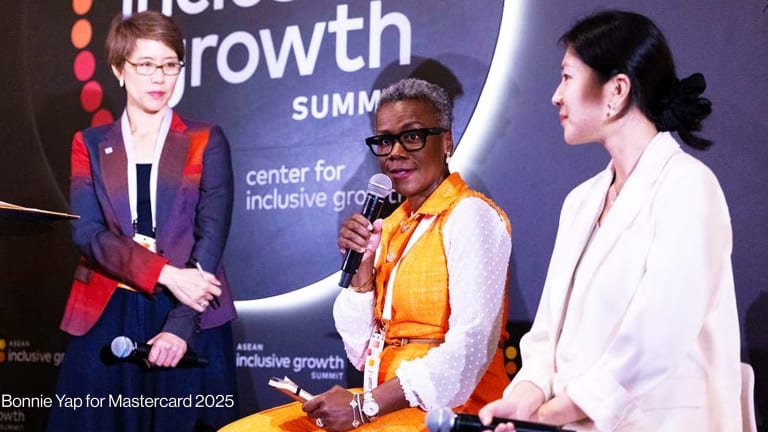
We live in an age when companies know us better than many of our friends and family do. This is in stark contrast to the limited information we have about people in the world’s poorest countries, and the information many governments share with their citizens about decisions that impact their lives.
It is hard to fathom that companies in Silicon Valley likely know more about the wants and needs of the people living in Africa than the agencies tasked with helping these people.
But due to a lack of reliable, public data, that is the reality in which we live.
As the United Nations World Data Forum opened in Dubai, United Arab Emirates, this week, we believe that world leaders should commit to tapping into the power of data to transform the fight against extreme global poverty.
Data science allows us to leverage accessible public information to gain a more accurate picture of individuals’ needs, identify where the system has failed them, and, most importantly, uncover opportunities to resolve these failures. But this can only happen when the data used to make decisions is available, reliable, up-to-date, and fully protective of the individuals reflected in it.
Just how pervasive is this data gap of governments?
Consider these estimates. Roughly half of all deaths and nearly one-third of all births globally are not recorded. When causes of death are not registered, it is difficult to track disease. When births are not registered, children do not officially exist and may not have access to the health, social, and financial services that often depend on a birth certificate.
Without these forms of documentation, population statistics — which inform a range of policy decisions — are incomplete at best, and wrong at worst. Many low-income countries base their poverty estimates on data that is more than a decade old. Eritrea, for instance, hasn’t conducted a census since 1984.
Without reliable data, we are unable to address economic, environmental, and health challenges around the world. One hundred and thirty million school-aged girls are not in school. But we do not know where they are, nor do we know what prevents them from attending school.
Policymaking without high-quality public data is governing by guesswork. It is like asking an engineer to build a bridge without knowing the width and depth of the river. How can policymakers in poor countries decide on the best strategy to decrease infant mortality? How can communities determine where they need a school, bank, or clinic? How can we ensure that people everywhere benefit from better data, instead of being exploited by it?
In a 21st century, data-driven world, countries should have the basic information necessary to take informed decisions about where to build schools and know how many children will use them, and where to direct medical resources most effectively.
Many reasons exist for the absence of reliable data — widely dispersed populations, underfunded national statistical offices, and political instability — but it is time for governments, with the support of multilateral institutions, to mobilize resources to improve the quality and quantity of public data.
Individual governments are responsible for making change. The good news for cash-strapped governments is that opening up data can yield a high return on investment, saving money in the long term and spurring innovation. For instance, the Kenyan government has estimated that opening up government procurement data could save it $1 billion annually.
But there is another side to the data gap: People in many of the world’s poorest countries have little access to information about how their governments spend their money, where and how aid money is spent, why policy decisions are made, and how effective this spending is.
To begin, governments must ensure that key budget information is made publicly available online. They should publish their contracts, disclose natural resource revenues, and establish public registers of company ownership.
To power these efforts, they can allocate resources toward strengthening the capacities of their national statistical offices, and committing to protecting the privacy of individuals through stronger governance norms. They’d also be wise to join the Open Government Partnership, a collaboration that drives governments and civil society to use data and policy transparency to generate solutions and results.
Citizens have the right to access information to hold their governments accountable. And in turn, an informed public can help governments identify solutions that work.
The private sector also has a role to play, including by making public the nonproprietary data that could have social benefit. This data should be free and available to everyone, so that entrepreneurs and innovators can build the economic engines of tomorrow.
As big companies amass large pools of data to train artificial intelligence and commoditize consumer interests, we have a responsibility and an opportunity to ensure that relevant, anonymized data is made freely available to serve the public good. Without doing so, we will fail to identify inequalities and their remedies.
We must start treating data as we would any other public utility or major infrastructure: as an investment in our collective future. Let us begin by investing in data that helps end extreme poverty.









